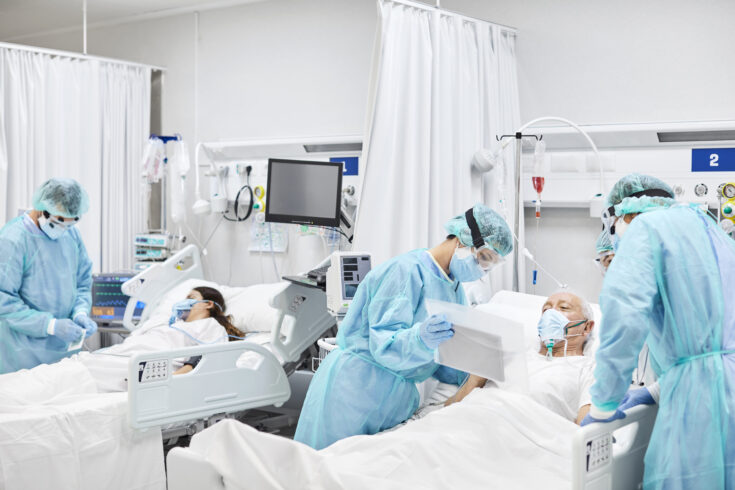The ‘RECOVERY’ trial has released a preliminary analysis showing aspirin did not significantly reduce the risk of death for patients hospitalised with COVID-19.
The ‘Randomised Evaluation of COVid-19 thERapY’ (RECOVERY) trial was funded by UK Research and Innovation (UKRI). It is part of the Medical Research Council and National Institute for Health Research COVID-19 rapid research response.
The RECOVERY trial was established as a randomised clinical trial to test a range of potential treatments for patients hospitalised with COVID-19.
To provide real-time information in the pandemic, the results are available as a preprint on medRxiv. Full results will be made available as a peer-reviewed publication once follow-up has been completed for all participants.
COVID-19 and blood clots
Patients with COVID-19 are at increased risk of blood clots forming in their blood vessels, particularly in the lungs.
Platelets, small cell fragments in the blood that stop bleeding, seem to be hyperreactive in COVID-19 and may be involved in the clotting complications. Since aspirin is an antiplatelet agent, which is widely used to reduce blood clotting in other diseases, they studied if it could reduce the risk of blood clots in patients with COVID-19.
Effects of aspirin
Between November 2020 and March 2021, the RECOVERY trial included nearly 15,000 patients hospitalised with COVID-19 in an assessment of the effects of aspirin.
A total of 7351 patients were randomised to aspirin 150 mg once daily and compared with 7541 patients randomised to usual care alone.
There was no evidence that aspirin treatment reduced mortality. There was no significant difference in the primary endpoint of 28-day mortality, with 17% aspirin compared to 17% usual care. The results were consistent in all pre-specified subgroups of patients.
No significant difference
Patients allocated to aspirin had a slightly shorter duration of hospitalisation, with a median eight days compared to nine days, a higher proportion were discharged from hospital alive within 28 days, with 75% compared to 74%.
Among those not on invasive mechanical ventilation at baseline, there was no significant difference in the proportion who progressed to invasive mechanical ventilation or death, with 21% compared to 22%.
For every 1000 patients treated with aspirin, approximately six more patients experienced a major bleeding event and approximately six fewer experienced a thromboembolic (clotting) event.
Professor Peter Horby, joint chief investigator for the RECOVERY trial at the University of Oxford, said:
The data show that in patients hospitalised with COVID-19, aspirin was not associated with reductions in 28-day mortality or in the risk of progressing to invasive mechanical ventilation or death.
Although aspirin was associated with a small increase in the likelihood of being discharged alive this does not seem to be sufficient to justify its widespread use for patients hospitalised with COVID-19.
Professor Martin Landray, joint chief investigator for the RECOVERY trial at the University of Oxford, said:
There has been a strong suggestion that blood clotting may be responsible for deteriorating lung function and death in patients with severe COVID-19. Aspirin is inexpensive and widely used in other diseases to reduce the risk of blood clots so it is disappointing that it did not have a major impact for these patients. This is why large randomised trials are so important – to establish which treatments work and which do not.
As ever, we are enormously grateful to the thousands of medical staff and patients who have contributed to the RECOVERY trial, helping to find better treatments for patients all around the world.
Previously, in June 2020, the RECOVERY trial found that the inexpensive and widely available steroid dexamethasone reduces death for patients with severe COVID-19. This rapidly became part of standard-of-care given to all such patients.
Top image: Credit: Morsa Images / Getty Images

